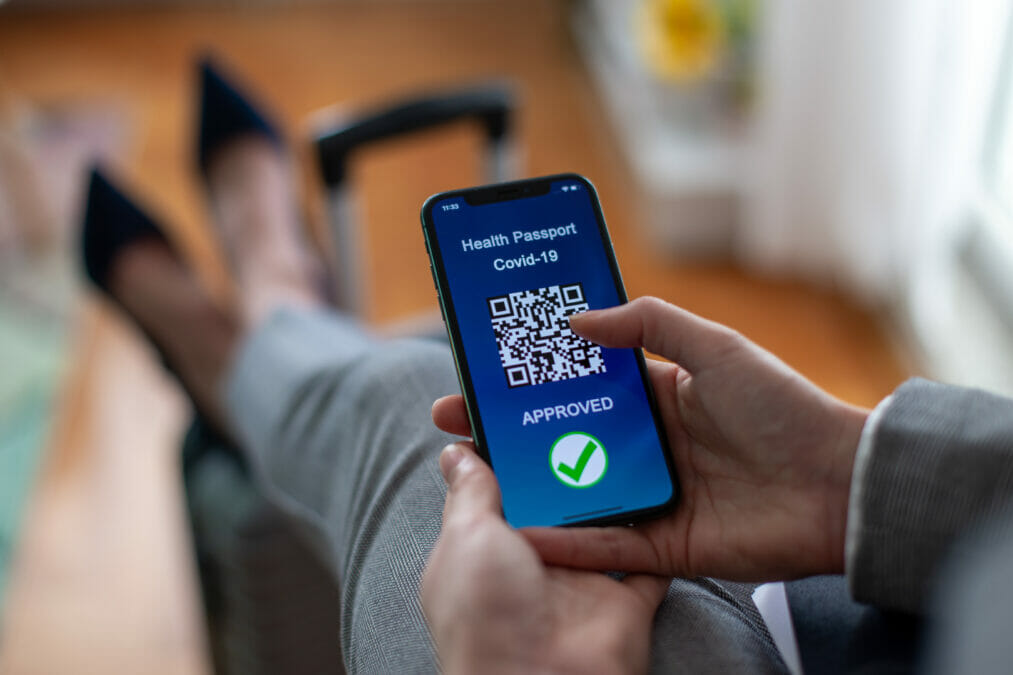Health passports are the latest step in the evolving response to the global pandemic. It’s an idea that’s gaining traction too, as it seems such an obvious solution to help reopen the door to a post-Covid-19 world. However, one person’s common sense approach to halting the spread of the virus and returning the world to a pre-virus level of interaction could be someone else’s worst nightmare. The devil, as ever, is in the detail.
Establishing a global standard
The first issue is standards – for a virus passport to work, there needs to be a globally-enforceable criteria for what ‘free to travel’ actually means. Without this, the system will be unable to create long-term confidence, the very thing that it’s aimed at doing. This includes the confidence to open borders, restart faltering economies, resurrect international trade and resume a lifestyle that many of us took for granted. So before everyone gets carried away with the idea, the practicalities of a vaccine passport need close scrutiny.
Verify and validate
The next questions that need answering are around verification and validation. Is the person with the passport who they say they are, and are their vaccination and health details actually correct? For any system to be guaranteed and certifiable will require large quantities of personal data to be made accessible, something that many might find problematic from a privacy standpoint. So what could be the answer?
Well, one option is that the person who vaccinates you also stamps your passport, or perhaps a photo is taken of your vaccination record. The big question is then how you verify it’s yours and not someone else’s paperwork? In my opinion, the only workable solution is the creation of a mobile app with two-factor authentication.
One year on: How AI can supercharge the healthcare of the future
Digital fingerprint
First, you’d download the app and provide identification as part of the sign-up process; details such as name, date of birth and national insurance number. You’d also be expected to add in vaccination data, tagged to your NHS number, and passport details, too. This would create a unique digital fingerprint for every user but it would still need to be verified by a trusted third party before a unique QR code is delivered to your phone, complete with an expiry date that could be used for a range of purposes such as booking travel or event tickets and gaining access to commercial properties.
The road ahead
Health passports are going to arrive in one form or another – too much is at stake for them not to become a reality. How they’re designed and deployed will dictate the level of political resistance, user confidence, and ultimately their value. What is clear is that the chosen scheme needs to minimise citizen impact and be underpinned by a high level of trust, by individual users as well as wider society. A key part in creating the required level of acceptance will rest on the shoulders of the technology providers underpinning the rollout of a health passport scheme. Some companies have broader backs than others.











